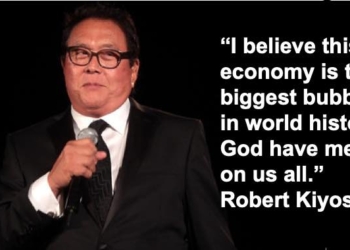
The legislative framework of the Markets in Financial Instruments Directive II (MIFID2) has been applicable for online forex brokers since January 2018. The new measures were designed to improve financial protections for retail investors, whilst ensuring that the financial markets themselves improve their general transparency and efficiency.
The concept of MIFID and MIFID2 was ushered in by the European Securities and Markets Authority (ESMA), the supervisory authority of financial markets and their participants within the European Union (EU). Since its foundation in 2001, ESMA has sought to provide a level playing field of equal opportunities for both retail investors and issuers within the EU.
But despite the growing supervision of online brokerages offering all manner of stocks, contracts for difference (CFDs) and binary options, there are still many unregulated online brokers in operation. Why would retail traders risk their hard-earned investment funds with an unregulated broker that has no legal responsibilities with their money? The harsh reality is that many retail traders are oblivious to the fact their chosen broker is unregulated.
What are the dangers of using an unregulated forex broker?
The moment you deposit your funds with an unregulated forex broker, you are on a slippery slope. That’s because unregulated operators do not protect their clients when things go wrong. In the event of fraud or mistreatment, regulated forex brokers are subjected to stringent compliance requirements, in terms of how a client’s assets are handled and stored. Should an unregulated forex broker go out of business, there is no guarantee that your funds are safe or likely to return to you. Unregulated brokers also have the potential to adopt unethical business practices, simply because they have free reign to operate however they like, without oversight.
The very nature of regulations in forex brokerages is centred around quality control. Regulated brokers are happy for their business and finances to be subject to periodic scrutiny and auditing, providing peace of mind to their clients and jurisdictions that act as watchdogs for the financial markets.
The jurisdictions to look out for when selecting a forex broker

Before dipping your toes into the water of financial trading, it’s important to select a broker that is regulated by the necessary jurisdictions. We’ve already touched upon the MIFID2 and ESMA, which is the important regulatory regime for all retail traders based in the EU, but it’s also worth mentioning the ASIC, which is the corporate, markets and financial services regulator for Australian forex brokers.
Looking further afield, reputable international forex brokers will also look to achieve licensing from the likes of the British Virgin Islands Financial Services Commission. In Japan, active forex brokers can be regulated and licensed by either the Financial Services Agency or the Financial Futures Association of Japan. South African brokers should seek regulation from the South African Financial Sector Conduct Authority.
Without these jurisdictions, the financial markets would be a much more dangerous and volatile environment for retail traders. These watchdogs are designed to foster stable trading conditions and enforce the highest possible standards of client service from brokerages up and down the land.









